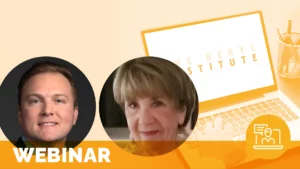Understanding, Equity, Inclusion and Cultural Differences

Pamela Y. Abner, Vice President and Chief Administrative Officer-Office for Diversity & Inclusion, Mount Sinai Health System
The presentation will address:
- Raising awareness of cultural factors and beliefs that impact cultural competence in terms of how we provide care to patients
- Focusing on the capacity to function effectively as individuals or an organization within the context of cultural beliefs and behaviors of diverse communities
- Identifying tools to enhance communication with patients
- Practicing inclusivity to achieve equity
Related content
-
 Culture & Leadership | Innovation & Technology | Patient Family & Community Engagement | Quality & Clinical Excellence
Culture & Leadership | Innovation & Technology | Patient Family & Community Engagement | Quality & Clinical ExcellenceFrom Words to Wellness: Promoting Health Equity through Translation
This webinar will explore the critical intersection of language access and health equity. This engaging event will cover a range of topics, including: Language Barriers: Address the challenges posed by language barriers and their impact on healthcare access and outcomes. Translation Technology: Discover advancements in translation technology and how they are revolutionizing communication in healthcare.
Learn more -
 Culture & Leadership | Staff & Provider Engagement
Culture & Leadership | Staff & Provider EngagementA Toolbox for Work-Life Balance
2pm ET / 1pm CT / 12pm MT / 11am PT – Do you ever feel like you live at work? Do you have a difficult time getting in enough “ME Time” to balance work and life? In this webinar, we will consider some of our roadblocks that get in our way and identify techniques
Learn more -
 Culture & Leadership
Culture & LeadershipThe Role of Servant Leadership in Employee Engagement & Job Satisfaction
By Priscilla DeLeon Background Dr. Priscilla DeLeon completed a successful dissertation entitled “A Case Study of Global Leadership in Allied Health: Supporting the Enhancement of Employees’ Engagement and Job Satisfaction.” The report was very overwhelming and dear to the author as an allied health professional herself for over ten years in various roles. Her research
Learn more
